South Korea: Peasants call for structural and fundamental measures to guarantee the price of rice!
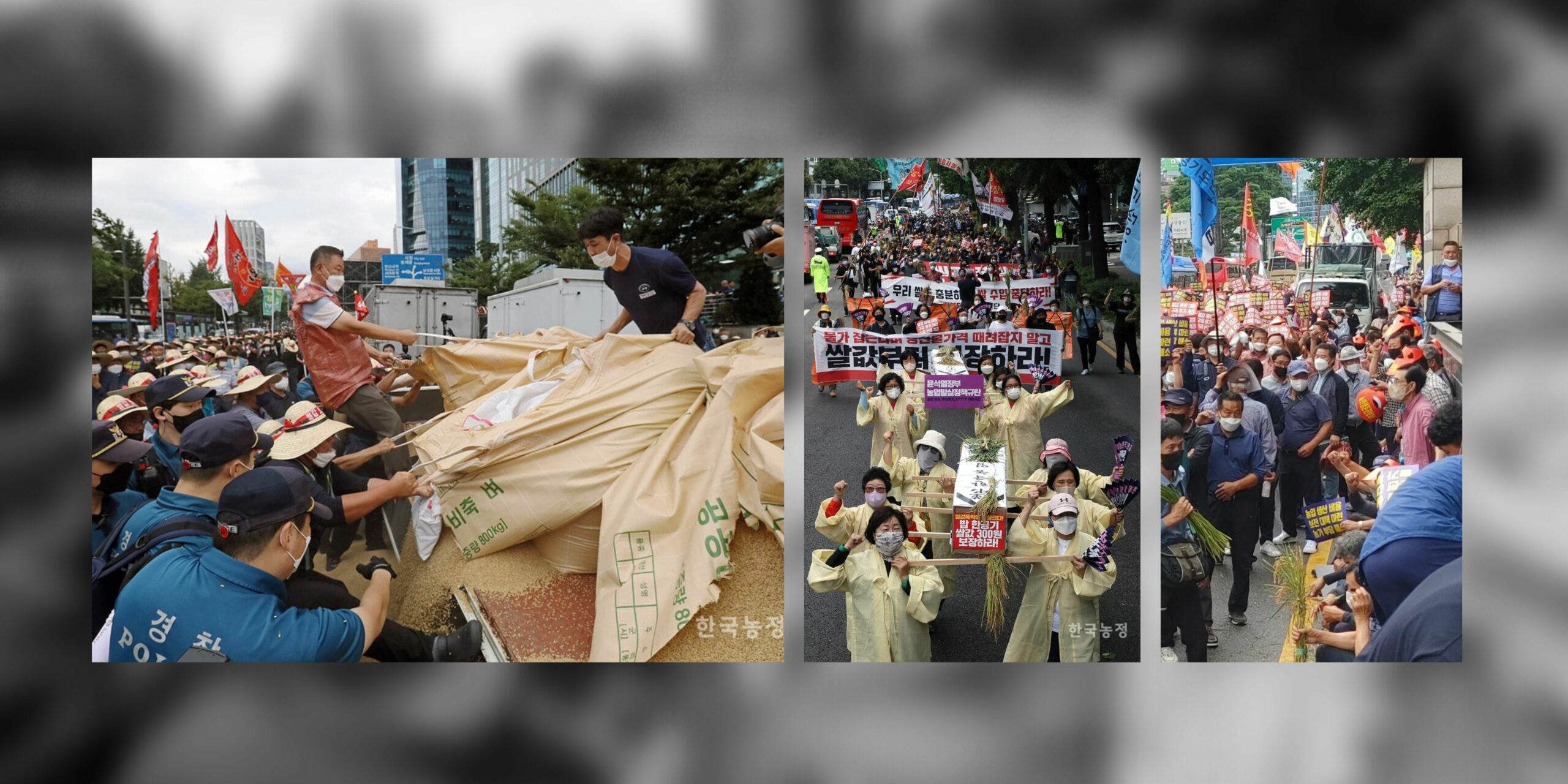
In a press note, the Korean Peasant League and Korean Peasant Women’s Association have insisted that market isolation is not enough and have called for structural and fundamental measures to guarantee the price of rice!
After protests and demonstrations by the peasant unions, the South Korean government announced that it would quarantine 450,000 tons of excess production this year, which is more than the expected 250,000 tons.
However, even in this announcement, the government showed no will to guarantee stable rice prices. They refused to revise the Grain Management Act, which the peasant unions have consistently requested.
According to the unions, quarantining the market may temporarily address the price crash but will not solve the problem for peasant communities. They allege that the move to quarantine the market is a public relations exercise to bolster the dipping popularity and rating of the President.
“Why did the price of rice fall in the first place? It was a failure of government policy. Abolition of grain purchase, abolition of the target price, revision of grain management law without automatic market quarantine, and opening of rice market without measures. Failed policies piled up one after another, creating a catastrophe which led to the biggest collapse in 45 years. What has happened to the peasants’ lives since? It’s getting harder and harder. Peasants are giving up farming in a vicious cycle of an endless fall in rice prices and soaring production costs.” the press note published on 26th September from KPL reads.
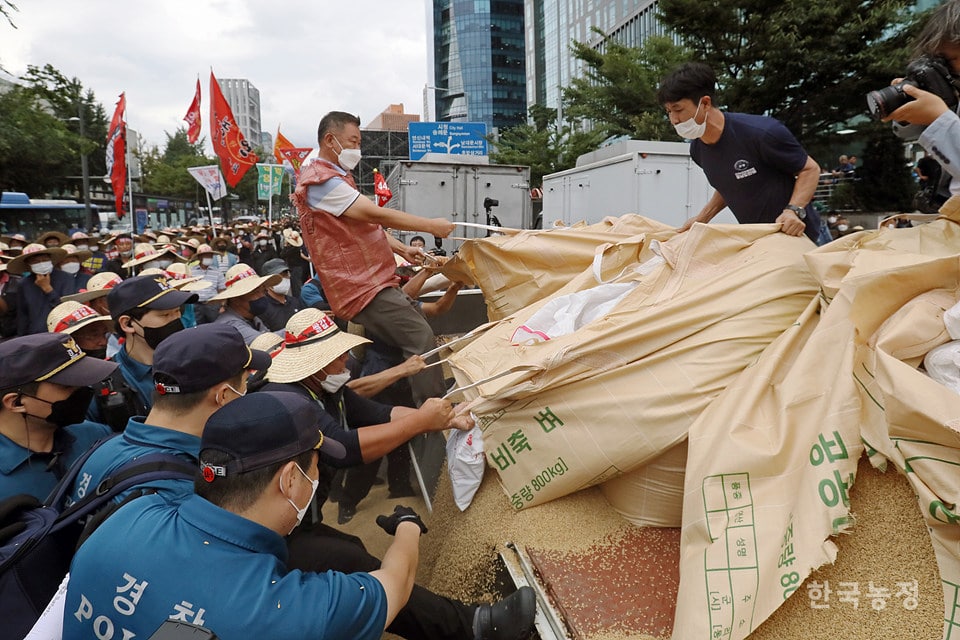
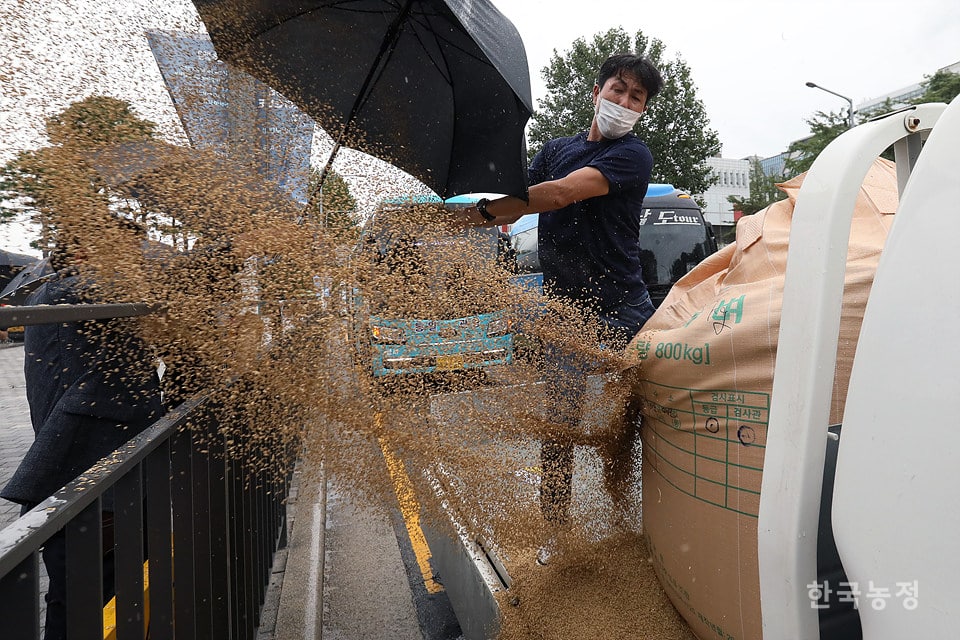
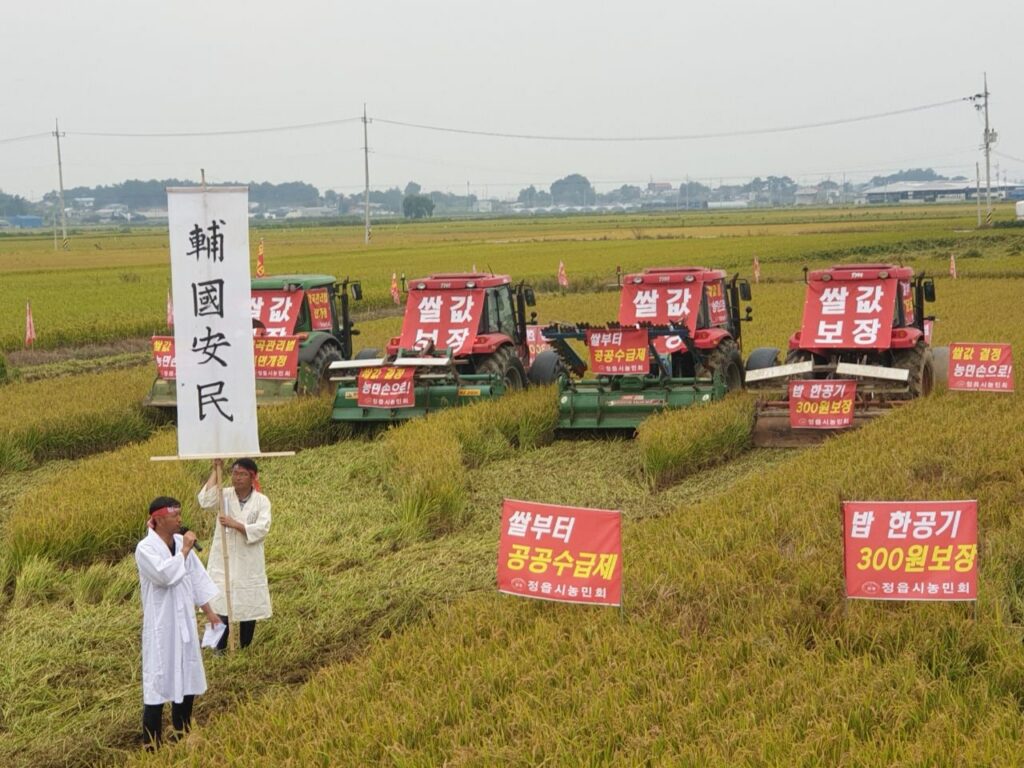
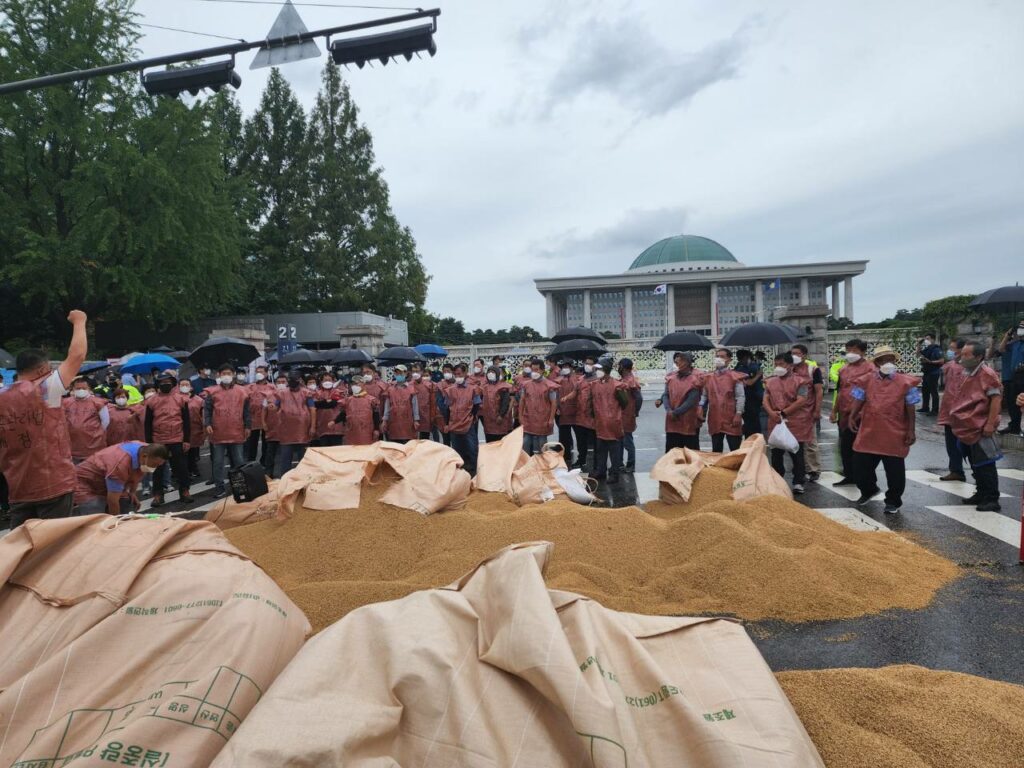
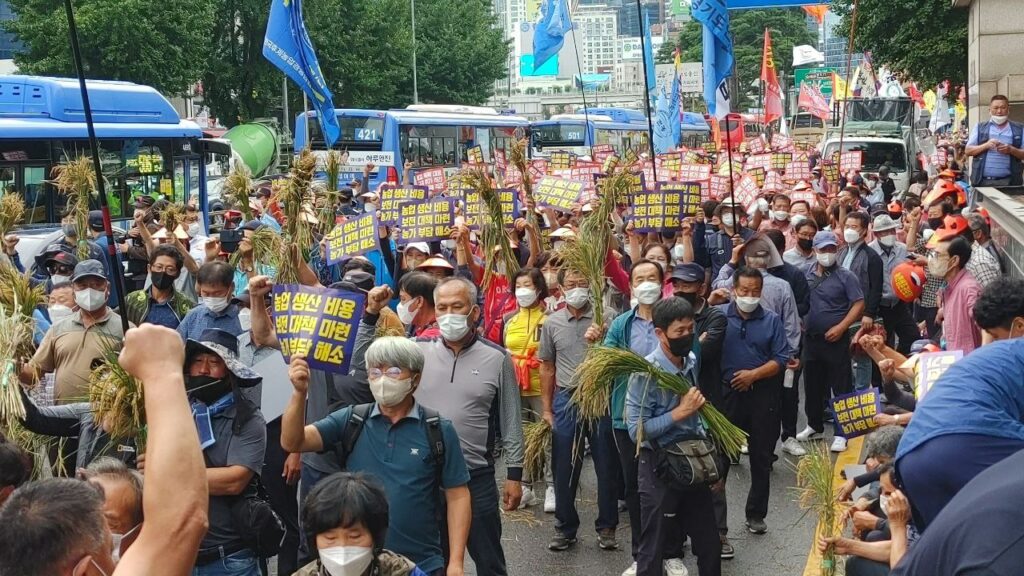
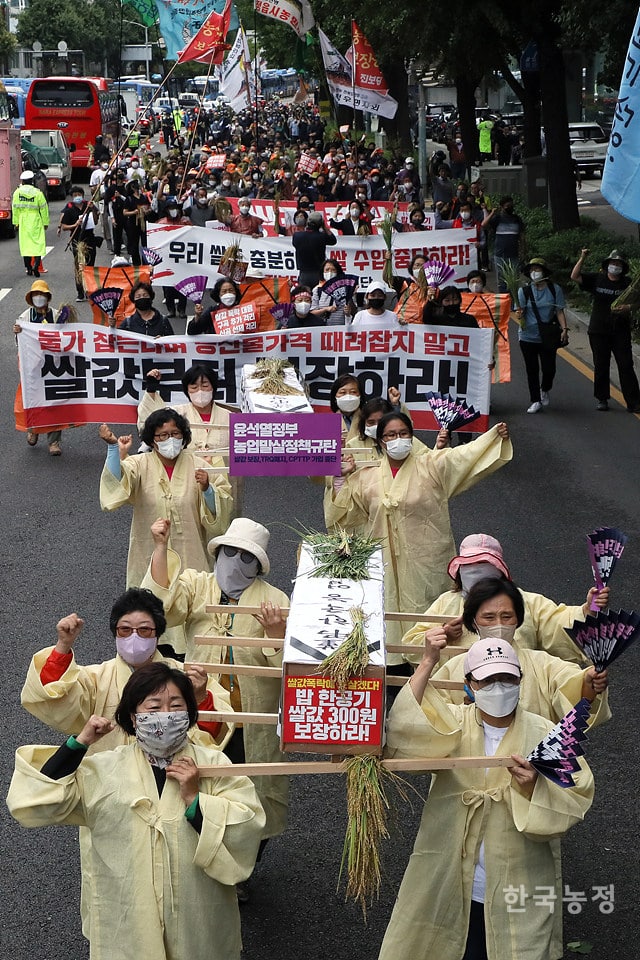
KPL reiterated that correcting failed policies requires the right policies. A policy approach is not a one-time, generous measure but an opportunity to solve a fundamental problem. The reason peasants fight over the price of rice yearly is that the same problem is repeated yearly. If the price of rice is not stable enough to guarantee the cost of production, these protests will continue to play out in the future. So, peasants have been demanding structural and fundamental measures to ensure stable rice prices.
“It was not that the peasants sowed rice and ploughed the paddy fields only to enforce the market quarantine. Even after this announcement, the struggle of peasants will continue. Rather, it will be bigger and wider. The struggle of ploughing the rice fields, which has begun in Jeonbuk, is spreading beyond the traditional cultivated areas of Jeonnam and Chungnam to Gyeongnam and Gyeongbuk. Like the Donghak Peasant Revolution predecessors, they are preparing for the November National Peasant’s Congress, gathering their message. To protect rice rather than the price of rice, to protect food sovereignty rather than immediate income, we have no choice but to fight.”, the note added.
The Unions have demanded that the government take fundamental measures before it is too late. Rather than dismissing the desperate needs of peasants, the right grain policy should be established so that the state can take responsibility for rice, the staple food of the people.
“In the future, if the government continues to be sarcastic without sincerity, the government should clearly understand that it is not only the paddy fields that the peasants will plough. Introduce a just price system for rice by amending the Grain Management Act! Guarantee the minimum production cost of KRW300 for a bowl of rice! Immediately stop the rice TRQ that threatens food sovereignty and discard it through renegotiation!” the note demanded.
